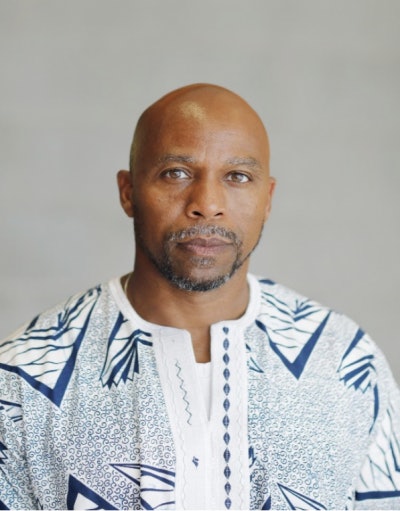Recently, the authors of this current piece, as part of the African American Male Education Network and Development (A2MEND) cultural exchange program, accompanied a group of 10 community college mentees on an education abroad experience to Senegal, West Africa.
 Dr. Nana Lawson Bush
Dr. Nana Lawson BushA central component of the experience was the intentionality placed on spirit and healing work, which included an opening Mami Wata ritual, a session with a seer, and another session with a Marabout (Shaman), coupled with restorative yoga, and a visit to the dungeon at Goree Island to see where enslaved Africans were held captive before being shipped like cargo to the Americas. The students also visited the African Renaissance Monument and the Museum of Black Civilizations. The results of a preliminary qualitative study of the trip found that it was a transformative experience for the participants. The educational experience transformed the participants’ cultural, social, and racial identities, as the trip fostered a combination of vulnerability and safety that created the conditions for Black men to grow and transform. Unfortunately, educational abroad opportunities for students of color in general, and for African American male community college students in particular, appear to be inaccessible.
Research on education abroad programs and experiences, regardless of research methodology, travel destination, duration of stay, race or gender of student, type of educational institution (i.e., four-year colleges, community colleges, Historically Black Colleges and Universities, or Predominantly White Institutions), educational level, or major, consistently shows such programs to have an overwhelmingly positive impact on students in key areas of development. With respect to achievement for students who are working toward an associate’s, bachelor’s, or graduate degree, research suggests that students who participate in education abroad opportunities have higher retention, graduation, and shorter time-to-degree rates compared to students who do not participate. In addition to their impact of basic measures of achievement, education abroad experiences have been found to buttress opportunities to further educational and career prospects and advancement.
Moreover, researchers found that education abroad participants experienced personal growth and developed attributes and skills, independence, and self-efficacy as well as demonstrated language and intercultural development that positioned them as better applicants for advanced education or jobs or made them more competent at a job that they currently held.
Although there is considerable evidence of the benefits of education abroad, the data also indicate that over at least the past 10 years, according to the Institute of International Education, the vast majority of those who participate in education abroad programs are White, women, and attend traditional four-year institutions. African American students only account for 5% of the students who participate and less than 2% of all participants are students who are pursuing an associate degree over the 10-year epoch. The most popular travel destination of participants is Europe, in particular, the United Kingdom, Spain, Italy, and France. African countries account for only about 5–6% of travel over the past 10 years, with South Africa as a destination 4–5% of the time.
So why don’t many African American students travel abroad? Noted explanations found in the petite literature suggests that African Americans have limited life experiences that may further limit their expectations of travel, a lack of involvement in campus activities, low socioeconomic status, choice of major, and college attrition rates. We find these explanations to be problematic. Many of these reasons focus on the student rather than the institution as a significant factor. Moreover, these explanations boldly display a classic deficit model approach. Many African American students desire to travel to Africa because of their experiences of systematic racism in the US in addition to having a deep spiritual, historical, cultural, and genetic connection to the continent.
 Dr. Edward Bush
Dr. Edward BushWithout question, education abroad programs for all gender, cultural, and college-going groups have a significantly positive impact on important academic and related measurements. While additional studies are needed, we know enough about the universal academic benefits of these experiences to justify aggressively creating more opportunities for African American community college men as they tend to be, because of structural racism, disproportionately behind their counterparts on many academic indicators.
Beyond the evident academic outcomes, however, for African American men education abroad experience in Africa seems to be a necessary rites-of-passage that provides an opportunity for positive cultural, political, racial, and gender identity development. Moreover, with the growing body of work and focus on the impact of racialized trauma, transgenerational transmission of trauma, and epigenetics, these educational experiences offer possible solutions for healing trauma which we now know is the root of many mental and physical health issues. Axiomatically, funding is a barrier especially if the student must carry the cost for the trip to Africa which ranges between $3,800 to $5,500 per student for a two-week experience. Yet, the financial burden for institutions with multimillion-dollar budgets, this expense is minuscule; thus, priorities must shift. For those who are truly invested in the well-being of African American men, every means to create education abroad experiences should be exhausted. Those institutions that already have programs for African American men, educational experiences in Africa must be an intricate component of the curriculum.
Dr. Nana Lawson Bush is a professor of Educational Leadership and Administration and Pan African Studies at California State University, Los Angeles.
Dr. Edward Bush is the president of Cosumnes River College.















